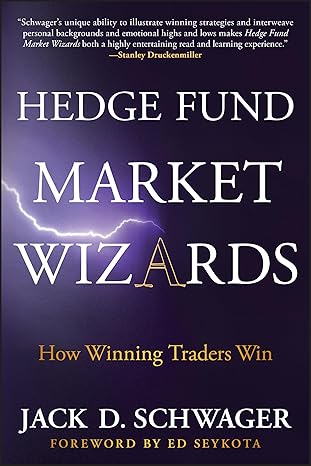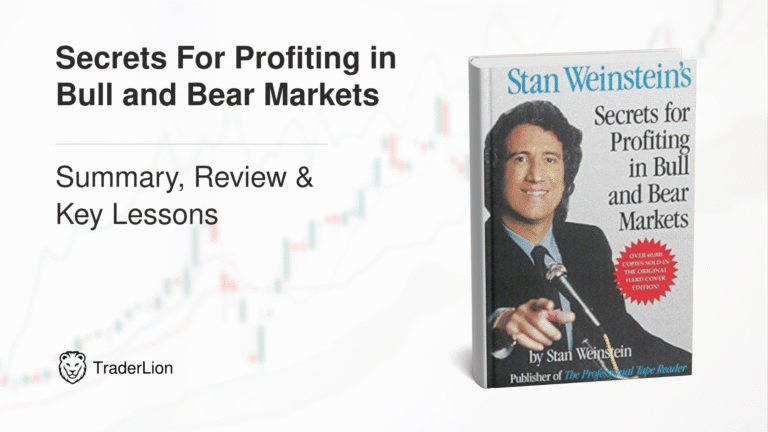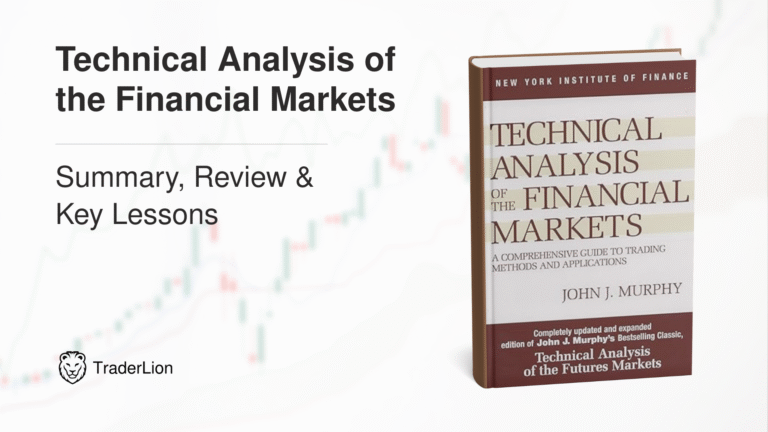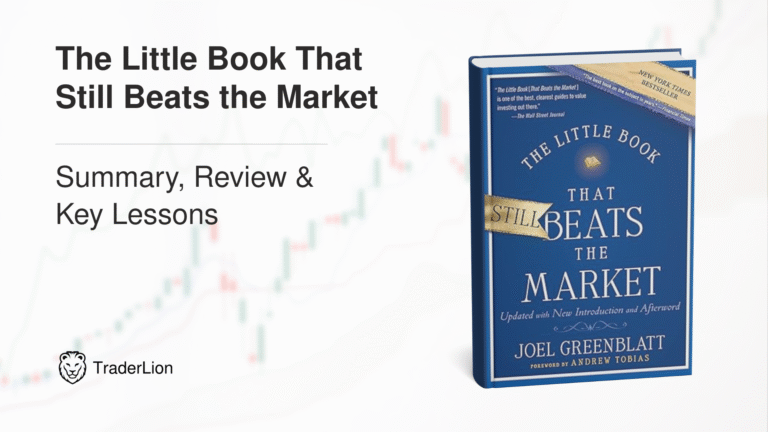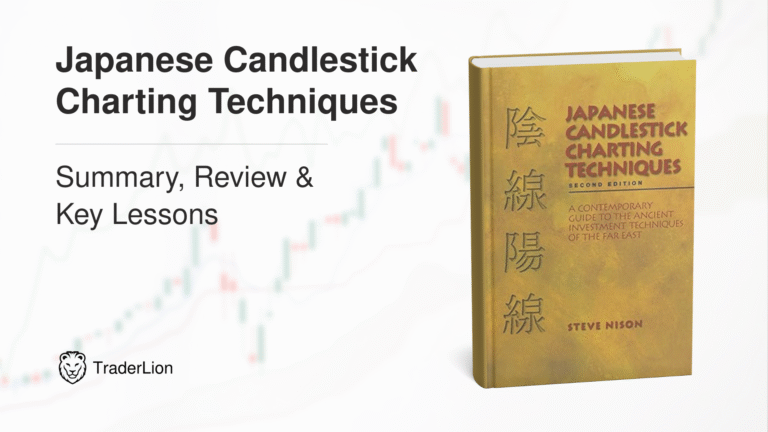When you’re stuck cycling through marginal strategies, it’s not from lack of effort. It’s from not seeing how real edge actually looks.
This book breaks that wall down. Most traders chase setups without understanding the mindset and process behind world-class execution. “Hedge Fund Market Wizards” shifts that. Through deep interviews, Schwager pulls out the working DNA of elite-level discretionary, systematic, and macro traders. These aren’t talking heads or theoretical thinkers. These are pros with real skin in the game and audited track records.
Many newer traders want the “one right system.” That’s the wrong lens. What this book shows clearly is how different styles—some even contradictory—can all work when built on internal alignment, risk control, and relentless refinement. You’ll walk away seeing that method is less about templates and more about congruence between thinking, temperament, and tactics. If you’ve ever felt like you’re one adjustment away from traction, this book will give you the real context and clarity you’ve been missing.
Quick Facts About Hedge Fund Market Wizards
Who Is Jack D. Schwager and Why Listen?
Jack Schwager is not a theorist. He’s a practitioner with over 40 years in futures research, fund management, and trading analysis. His Market Wizards series is revered for spotlighting how top traders actually think and operate. Before becoming an author, Schwager worked as Director of Futures Research at major Wall Street firms and co-managed the ADM Investor Services Diversified Strategies Fund.
He’s also consulted on hedge fund strategies and advised systematic trading platforms. Unlike many financial writers, Schwager has sat across from both discretionary legends and quants. That gives him a rare ability to translate both narrative and data-driven edge into something readers can act on.
Never miss a post.
Sign up to get instant notifications when we publish a new post.
If you’re looking for advice filtered through experience and hard-won insight, Schwager’s work qualifies—because he’s been in the room with the people who move real money, not just talk about it.
What is Hedge Fund Market Wizards About?
This book is a set of in-depth interviews with high-performing hedge fund managers.
It covers discretionary macro traders, quant/systematic traders, special situation experts, and equity stock-pickers.
Each chapter digs into how the trader developed edge, managed risk, adapted to drawdowns, and built long-term consistency.
Schwager uses each conversation to extract actionable lessons, mental models, and psychological shifts required for sustained profitability.
Hedge Fund Market Wizards Chapters at a Glance
Why Hedge Fund Market Wizards is a Must-Read
First, it breaks the illusion that there’s one “right” way to trade. Readers get firsthand accounts from traders who are wildly different—some use intuition, others build predictive algorithms. Some cut fast, others hold long. The common thread isn’t method. It’s discipline, self-awareness, and rigorous thinking.
Second, the interview format creates a level of depth that summary-style trading books just can’t match. Schwager is skilled at pressing for real answers—how they handled drawdowns, made shifts in edge, and corrected for psychological traps. These stories give practical context, not just abstract advice. You don’t just learn what they do, you learn why it works.
Top Lessons to Apply to Your Trading
1. Cut Losses Based on Hypothesis Invalidation
Colm O’Shea approaches every trade as a hypothesis. If the market moves against him in a way that disproves it, he cuts the position without hesitation. This isn’t about emotion—it’s about logic. Defining a trade’s failure point upfront neutralizes hesitation and removes ego from the exit.
2. There Is No Universal Strategy—Only Personal Fit
The most profitable traders shape their methods to fit their personalities. What works for Larry Benedict’s aggressive intraday style would destroy a patient researcher like Tom Claugus. If your strategy stresses you out or makes you second-guess constantly, it’s not the market—it’s the mismatch.
3. Risk Management Is the Only Constant
Whether macro, quant, or discretionary, every trader interviewed places risk control above signal quality. Capital preservation isn’t just defensive. It’s what enables confidence in scaling edge. The difference between a drawdown and a blowup is almost always position sizing and stop enforcement.
4. Learning Is Iterative, Not Linear
Several traders note that they only truly understood prior insights after living through losses. This is critical. Book knowledge must be filtered through experience to become useful. That also means failure is part of the path—not a sign of weakness, but proof of engagement with complexity.
Common Mistakes Hedge Fund Market Wizards Helps You Avoid
1. Trying to Copy a Guru’s Strategy
Mimicking someone else’s method without aligning it with your temperament leads to confusion and inconsistent results. What looks logical on paper may feel unbearable in live markets. This book shows how each trader succeeded because they stopped copying and started refining their own process.
2. Oversizing Positions
Several interviewees stress the danger of letting position size drive emotion. When trades are too big, even good setups become psychological minefields. One bad move triggers panic. Schwager’s interviews reveal how smart traders right-size positions to protect mindset as much as capital.
3. Looking for the One Right Answer
Traders stuck chasing “the perfect system” miss the bigger point: there isn’t one. Markets evolve. Edge degrades. What works now may not work next year. Successful traders continually evolve, not by jumping systems, but by refining their filters, execution, and feedback loops.
Best Quotes from Hedge Fund Market Wizards
“If I try to teach you what I do, you will fail because you are not me.” — Colm O’Shea
This underscores the need to customize your method. Learning from others isn’t about imitation—it’s about extracting principles and aligning them with your own strengths and limits.
“You have to trade within your emotional capacity.” — Steve Clark
Emotional congruence matters. Size and style must be set not just by capital, but by how much stress you can carry. Your strategy should support your psychology, not sabotage it.
“There is no Holy Grail in trading.”
This idea hits home again and again in the book. Every trader interviewed built success from iteration, not discovery. There’s no final system—only processes that work well for now.
Who Should Read Hedge Fund Market Wizards
This book is for serious traders—those who are past basic technical setups and are building a mature, personal edge. Intermediate to advanced traders will get the most out of it, especially if they already have experience in real capital deployment and risk.
It’s not for beginners looking for plug-and-play strategies. There’s no hand-holding or walkthroughs of how to open a trade. Instead, the value is in mindset, process, and long-view insights into what makes edge durable and scalable.
If you’re trying to build consistency in uncertain markets or shift from method-chasing to strategy refinement, this book belongs on your desk.
Final Thoughts on Hedge Fund Market Wizards
Most traders get stuck chasing execution without clarity on edge. This book flips that. It shows edge as something you build, not borrow. The intro’s pain point—strategy confusion—gets resolved through the recurring theme: understand yourself, then engineer around that.
From a tactical lens, the mental model worth stealing is treating trades as hypotheses. That removes ego, promotes clarity, and drives discipline. It’s a framework that transcends style.
TraderLion’s verdict: Essential. This is required reading for any trader who’s done with surface-level tactics and ready to build depth. It won’t give you your strategy—but it will show you how to find it.






